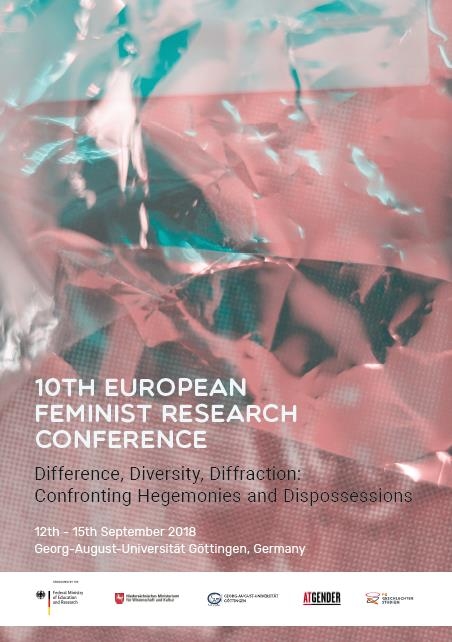Queering Feminist Solidarities
#Metoo, LoSHA and the Digital Dalit
DOI:
https://doi.org/10.17169/ogj.2020.71Schlagworte:
Postkolonialismus, Feminismus, Soziale Medien, Intersektionalität, Sexuelle BelästigungAbstract
Auf dem Höhepunkt der internationalen Sichtbarkeit von #metoo wurde auf Facebook eine Liste mit den Namen angesehener indischer Akademiker veröffentlicht, denen sexualisierte Belästigung vorgeworfen wurde. Die Liste war nicht nur insofern umstritten, als sie zu einem viralen Phänomen wurde (und damit zu einem Streitpunkt in der Frage nach der Legitimität von Internet-Kulturen im politischen Handeln), sondern auch, weil die Anschuldigungen keine Kontextualisierung der Umstände der angeblichen Verbrechen enthielten, um die Anonymität der Opfer zu schützen. Die Liste wurde schnell als "die Liste des Naming and Shaming" bezeichnet und stieß in der feministischen Bewegung selbst auf heftigste Kritik, da etablierte Feminist*innen öffentlich gegen solche Methoden und gegen Raya Sarkar, die queere Dalit, die das Dokument veröffentlicht hat, argumentierten. Der Artikel untersucht diese Solidaritätskonflikte als Konflikte zwischen transnationalen und lokalen Positionierungen und argumentiert für die Möglichkeit digitaler Räume als Umgebungen, die zu einem queering von Identitätspolitik, dem Ermöglichen konstruktiver Uneinigkeiten und transformativer Gerechtigkeit einladen, statt nur zu Konflikten und deren Lösung durch eine homogene feministische Identität.
Literaturhinweise
A Verso Report (2018): Where Freedom Starts: Sex Power Violence #MeToo. London / New York: Verso.
Ambedkar, Bhimrao Ramji (1946): What Congress and Gandhi have done to the untouchables. 1st Samyak Edition. Bombay: Thacker.
Ayyar, Varsha (2017): Caste-Gender Matrix and the Promise and Practice of Academia. In: Economic and Political Weekly 52 (50), 7–8.
Balsamo, Anne (2011): Designing Culture: The Technological Imagination at Work. Durham: Duke University Press. doi: 10.1215/9780822392149.
Bargi, Drishadwati (2017): On Misreading the Dalit Critique of University Spaces. In: Economic and Political Weekly 52 (50), 7–8.
Barlow, John Perry (1996): A Declaration of the Independence of Cyberspace. Electronic Frontier Foundation. https://www.eff.org/cyberspace-independence (17.10.2018).
Berlant, Lauren (1998): Intimacy: A Special Issue. In: Critical Inquiry 24 (2), 281– 288. doi: 10.1086/448875.
boyd, danah/Marwick, Alice E. (2011): I tweet honestly, I tweet passionately: Twitter users, context collapse, and the imagined audience. In: New Media & Society 13 (1), 114–133. doi: 10.1177/1461444810365313.
BuzzFeed India/Kandukuri, D. (2019): Is The Feminism We See Really Intersectional? BuzzFeed India. https://www.buzzfeed.com/watch/video/78088 (30.01.2020).
Castro Varela, Maria do Mar/Dhawan, Nikita/Engel, Antke (Ed.) (2011): Hegemony and heteronormativity: Revisiting ‘the political’ in queer politics. Queer interventions. Burlington, VT: Ashgate Pub. Company.
Chachra, Manisha (2017): Naming sexual harassers without due process is mob justice. Asia Times. https://www.asiatimes.com/2017/10/opinion/naming-sexual-harassers-without-due-process-mob-justice (16.08.2019).
Chaudhuri, Maitrayee (2017): Refashioning India: Gender, media, and a transformed public discourse. Hyderabad, Telangana, India: Orient BlackSwan.
Chun, Wendy Hui Kyong. (2016): Updating to Remain the Same: Habitual New Media. Cambrige (USA) / London (UK): MIT Press. doi: 10.7551/mitpress/ 10483.001.0001.
Das, Poulomi (2017): What Do We Do About the Sexual Harassers’ List? Arré. https://www.arre.co.in/gender/raya-sarkar-sexual-harassers-list-sexual-harassment-whisper-network-kavita-krishnan-kafila-statement-feminism-karuna-nundy (19.08.2019).
Dasgupta, Piyasree (2018): #MeToo In India: 75 Professors, 30 Institutes, What Happened To Raya Sarkar’s List Of Sexual Harassers? HuffPost India. https://www.huffingtonpost.in/2018/10/25/metoo-in-india-75-professors-30-institutes-what-happened-to-raya-sarkar-s-list-of-sexual-harassers_a_23571422 (27.09.2019).
Dean, Aria (2016): Poor Meme, Rich Meme. Real Life. https://reallifemag.com/poor-meme-rich-meme (21.05.2019).
Dey, Adrija (2018): Nirbhaya, new media and digital gender activism. 1st Edition. Emerald Publishing. doi: 10.1108/978-1-78754-529-820181002.
Fair, Christine C. (2017): #HimToo: A Reckoning. BuzzFeed. https://www.buzzfeed.com/christinefair/himtoo-a-reckoning (13.03.2019).
Gajjala, Radhika (2004): Cyber Selves: Feminist Ethnographies of South Asian Women. Rowman Altamira.
Gajjala, Radhika (2018): When an Indian Whisper Network Went Digital. In: Communication, Culture and Critique 11 (3), 489–493. doi: 10.1093/ccc/tcy025.
Gajjala, Radhika (2019): Digital diasporas: Labor and affect in gendered Indian digital publics. London / New York: Rowman & Littlefield International.
Gajjala, Radhika/Vemuri, Aysha/Sarkar, Raya (2019): Dialogue Interlude #9: On #LoSHA. In: Gajjala, Radhika (Ed.): Digital diasporas: Labor and affect in gendered Indian digital publics. London / New York: Rowman & Littlefield International.
Gopal, Priyamvada (2018): No Poetry After Auschwitz? Outlook.https://www.outlookindia.com/magazine/story/no-poetry-after-auschwitz/300086 (19.09.2019).
Gupta, Namrata/Dangwal, Rhea (2017): Raya Sarkar and All The List’s Men. Medium. https://medium.com/krantikali/raya-sarkar-and-all-the-lists-men-ae956f21eab1 (19.09.2019).
Jha, Sonora/Kurian, Alka (Ed.) (2018): New feminisms in South Asia: disrupting the discourse through social media, film and literature. New York / London: Routledge.
Kurian, Alka (2018): ‘Decolonizing the Body: Theoretical Imaginings on the Fourth Wave Feminism in India’. In: Jha Sonora/Kurian Alka (Eds.): New feminisms in South Asia: Disrupting the discourse through social media, film and literature. New York / London: Routledge.
Menon, Nivedita (2017a): Statement by feminists on Facebook campaign to “Name and Shame”. Kafila. https://www.kafila.online/2017/10/24/statement-by-feminists-on-facebook-campaign-to-name-and-shame (11.07.2019).
Menon, Nivedita (2017b): From Feminazi to Savarna Rape Apologist in 24 hours. Kafila. https://kafila.online/2017/10/28/from-feminazi-to-savarna-rape-apologist-in-24-hours (11.07.2019).
Menon, Nivedita (2018): In the wake of the AUD report. Kafila. https://kafila.online/2018/03/10/in-the-wake-of-the-aud-report (15.08.2019).
Mondal, Mimi (2018): A Dalit woman’s thoughts on #MeTooIndia. The Indian Express. https://indianexpress.com/article/opinion/a-dalit-womans-thoughts-on-metooindia-5402538 (22.08.2019).
Nayar, Pramod K. (2014): The Digital Dalit: Subalternity and Cyberspace. In: Sri Lanka Journal of Humanities 37 (1–2), 69–74. doi: 10.4038/sljh.v37i1-2.7204.
Paik, Shailaja (2014): Building Bridges: Articulating Dalit and African American Women’s Solidarity. In: Women’s Studies Quarterly 42 (3/4), 74–96. doi: 10.1353/wsq.2014.0053.
Paletta, Danielle/Anh Vu, Lieu (2018): ‘Indian LGBTI community celebrates the Supreme Court’s ruling on Section 377’. ILGA. https://ilga.org/india-Section- 377-Supreme-Court-ruling-unconstitutional (20.08.2019).
Puar, Jasbir K. (2007): Terrorist assemblages: Homonationalism in queer times. Durham: Duke University Press. doi: 10.1215/9780822390442.
Rao, Pallavi (2018): Caste and the LoSHA Discourse. In: Communication, Culture and Critique, 11 (3), 494–497. doi: 10.1093/ccc/tcy020.
Rasul, Zoya (2018): Why some Dalit voices are calling #MeTooIndia non-inclusive?. News and Analysis from India. https://newsd.in/why-some-dalit-voices-are-calling-metooindia-non-inclusive (19.08.2019).
Ray Murray, Padmini (2018): Bringing up the Bodies: The Visceral, the Virtual, and the Visible. In: Losh E./Wernimont J. (Ed.): Bodies of Information: Intersectional Feminism and the Digital Humanities. University of Minnesota Press: Minneapolis, 185–200. doi: 10.5749/j.ctv9hj9r9.15.
Roy, Srila (2017): Whose Feminism Is It Anyway? The Wire. https://thewire.in/gender/whose-feminism-anyway (19.08.2019).
Srinivasan, Ramesh (2019): Whose Global Village? Rethinking how technology shapes our world. New York: NYU Press.
Tellis, Ashley (2012): Disrupting the Dinner Table: Re-thinking the “Queer Movement” in Contemporary India. In: Jindal Global Law Review 4 (1), 142–156.
The New Indian Express (2017): ‘#MeToo crusader Tarana Burke, Dalit-American transmedia artist Thenmozhi Soundararajan come out in support of Raya Sark-ar’. The New Indian Express. https://newindianexpress.com/nation/2017/oct/26/metoo-crusader-tarana-burke-dalit-american-transmedia-artist-thenmozhi-soundararajan-come-out-in-s-1683589.html (20.08.2019).
Thomas Danaraj, Christina (2018): MeToo and savarna feminism: Revolutions cannot start with the privileged, feminist future must be equal for all. Firstpost. https://www.firstpost.com/india/metoo-and-savarna-feminism-revolutions-cannot-start-with-the-privileged-feminist-future-must-be-equal-for-all-5534711.html (20.08.2019).
Visvanathan, Shiv (2018): The Chilly Justice Of The Gulag. Outlook. https://www.outlookindia.com/magazine/story/the-chilly-justice-of-the-gulag/299993 (21.02.2019).

Downloads
Veröffentlicht
Zitationsvorschlag
Ausgabe
Rubrik
Kategorien
Lizenz
Alle Beiträge in Open Gender Journal erscheinen unter der Lizenz Creative Commons Namensnennung 4.0 International (CC BY 4.0). Die entsprechenden Texte dürfen Sie unter den Bedingungen der Lizenz frei nutzen (Lizenzvertrag, allgemeinverständliche Fassung). Es findet keine exklusive Übertragung von Verwertungsrechten („copyright transfer“) an die Zeitschrift statt. Open Gender Journal stellt den Autor*innen keinerlei Kosten für die Publikation (sogenannte Article Processing Charges, APC) oder die Einreichung (sog. Submission Charges) in Rechnung. Die Autor_innen werden ermutigt, ihre Beiträge auch an anderen Orten, z.B. in Repositorien, einzustellen.













